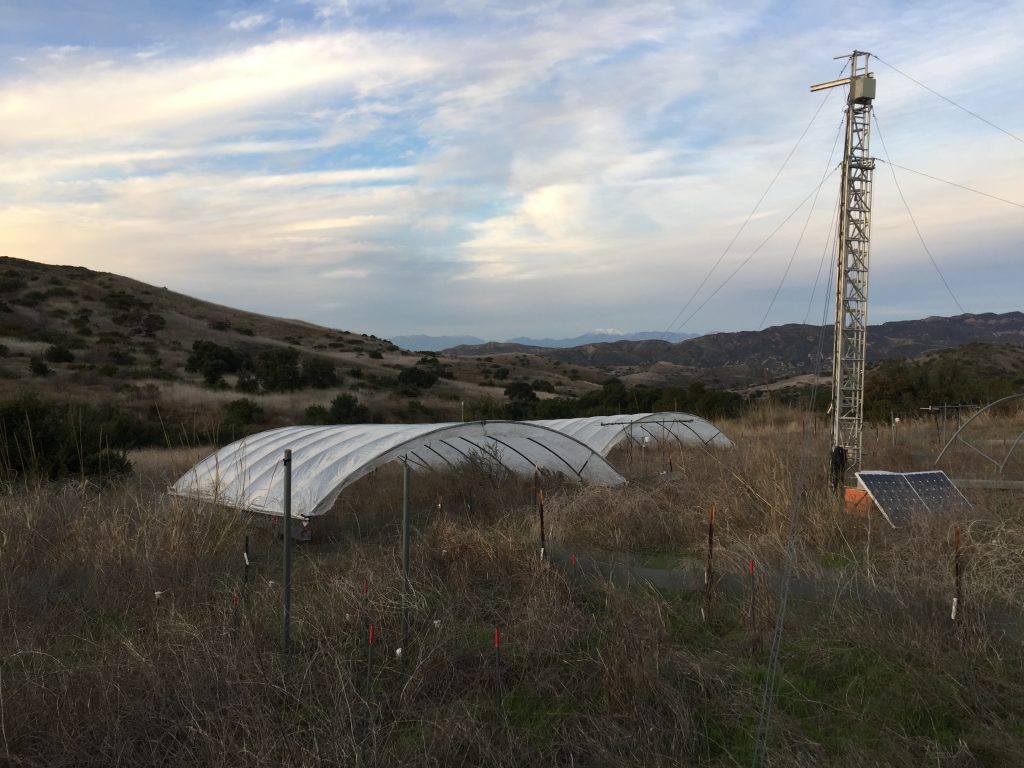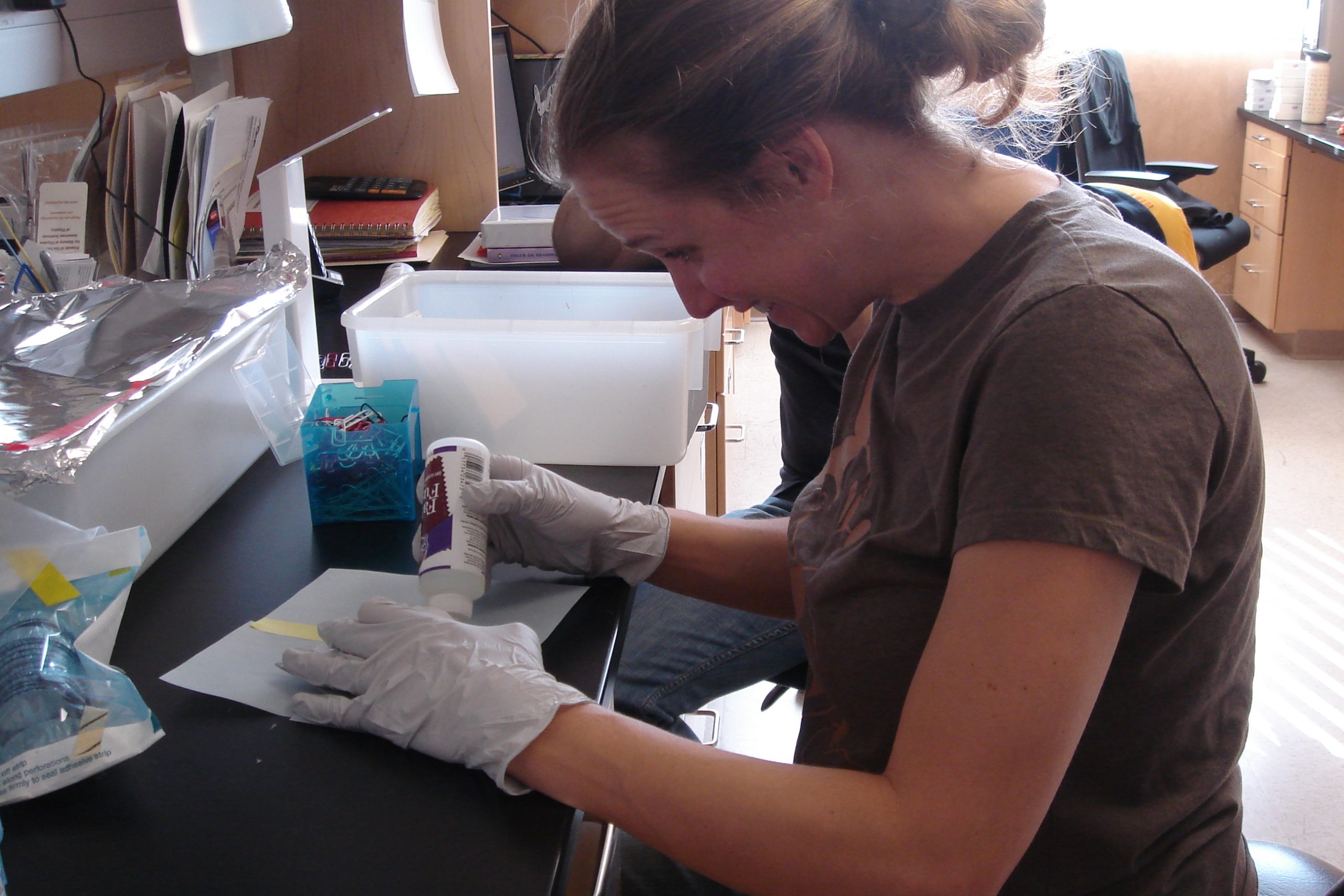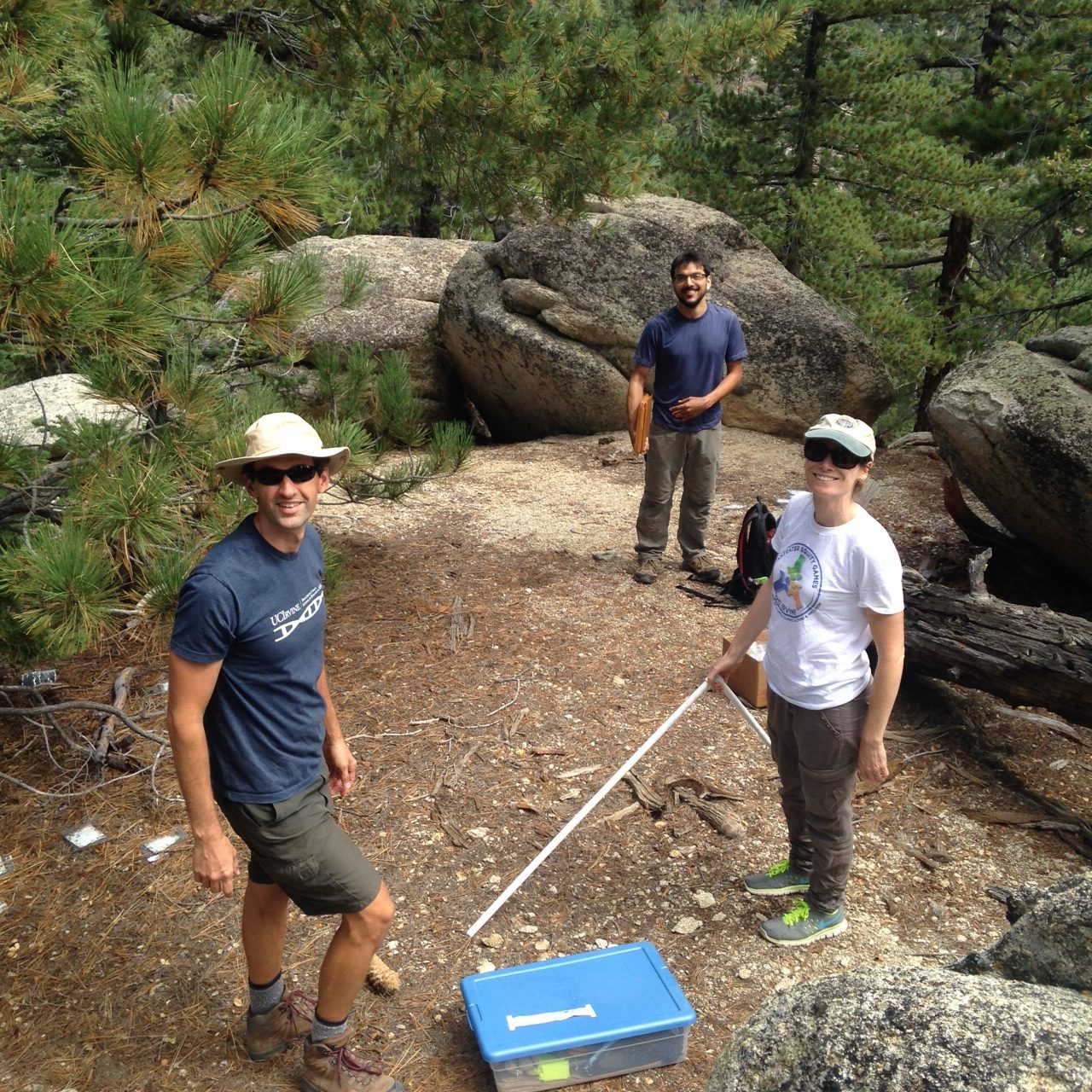“Our research uncovers the fundamental roles of microbial life on Earth, and how those roles might shift with climate change.” ~ Steven D. Allison, Ph.D.
Our research analyzes the functioning of microbial communities in soil carbon and nutrient cycling, particularly in response to environmental change. The key questions we address are 1) How do microbial communities and their associated ecosystem functions respond to environmental variables and 2) How can we predict microbial functions under future environmental change? We are particularly interested in the response of microbes and soil carbon to climate change. To address these questions, we combine experimental and theoretical approaches at scales ranging from molecules to the globe.
The rainfall manipulation experiment at Loma Ridge reduces precipitation by 50%, allowing researchers to study the impacts of drought on plants, microbes, and soils
Microbial responses to drought
Even as droughts become more frequent and intense with climate change, especially in California, it is not clear how microbial communities will cope. Our research fills this knowledge gap and enables better predictions of how drought will affect crucial ecological benefits such as carbon and nutrient cycling. We apply cutting-edge molecular tools to show how microbial communities in Southern California tolerate dry conditions by expressing different genes and altering their metabolism. Several of our studies suggest that microbes in Southern California ecosystems can maintain their beneficial functions despite large changes in moisture and climate, perhaps because microbes here experience hot, dry conditions every summer. We have also tested how drought interacts with nitrogen cycling and how precipitation changes affect microbes in other parts of the world.
Microbial responses to climate warming
We are interested in developing theory to explain how microbially-derived enzymes and processes adapt to changes in temperature. Some of our empirical work shows that microbial activity is not likely to adapt or acclimate to climate warming in a way that will promote more carbon storage in soils as the climate warms. Rather, mechanisms of adaptation could allow soil microbes to maintain or increase carbon losses from soil under warmer temperatures. These empirical studies also revealed inconsistencies in prior literature about temperature adaptation, so we have proposed to integrate Arrhenius temperature responses with theory on thermal adaptation of enzyme activity. We are extending this integration to Macromolecular Rate Theory (MMRT) which is a new, more biologically realistic hypothesis for how biological processes change with temperature. We also apply data-driven approaches to analyze thermal adaptation in soils from long-term warming experiments.
Data from warming experiments like this one in Alaska are essential for understanding how microbes and ecosystems will respond to climate change
Researchers construct microbial cages used to test how microbial diversity influences ecosystem processes like the recycling of dead plant material
Microbial trait theory
Our research team is leading efforts to develop the trait-based ecology of microbial systems, especially in relation to climate change. Using empirical approaches, we measure microbial traits such as growth rates, growth efficiencies, and biochemical enzyme activities. With collaborators, we also analyze how microbial traits vary along environmental gradients. We have synthesized these measurements to develop a new theory on how microbes allocate resources among different traits. This theory is significant because it provides a novel perspective on fundamental “rules of microbial life” that determine how microbes affect their environment.
Soil carbon cycling
We have a long-standing interest in applying data and models to improve predictions of the soil carbon cycle at ecosystem to global scales. This research is significant because soils act like a “sponge” for carbon emissions from human activities. At the same time, soil carbon is vulnerable to human-caused disturbances such as land use and climate change. Our recent research in this area addresses mechanisms regulating soil carbon stability, development of improved soil carbon models, new statistical tools for model comparison, and a novel application of radiocarbon dating to constrain the age and vulnerability of soil carbon to environmental change.
Researchers take a break from installing experimental plots along a climate gradient in Southern California
Interdisciplinary work on climate change
Our research team is leading efforts to develop the trait-based ecology of microbial systems, especially in relation to climate change. Using empirical approaches, we measure microbial traits such as growth rates, growth efficiencies, and biochemical enzyme activities. With collaborators, we also analyze how microbial traits vary along environmental gradients. We have synthesized these measurements to develop a new theory on how microbes allocate resources among different traits. This theory is significant because it provides a novel perspective on fundamental “rules of microbial life” that determine how microbes affect their environment.




